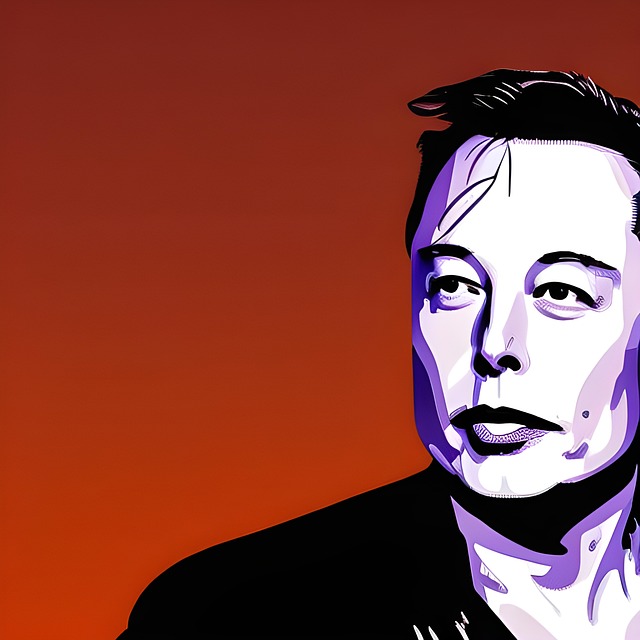
Last time, we looked at how Tesla’s CEO Elon Musk had potentially alienated some of his client base, as well as deterring future owners. If that turns out to be the case, who will benefit? That’s what we’ll look at this time.
Step up, Chinese manufacturers.
The obvious candidates standing to gain from a Tesla downturn would be Chinese manufacturers, such as BYD.
A decade ago, Chinese cars were often perceived as cheap, shonky knock-offs of Western brands. These days, they’ve moved way beyond that, producing cars that are real competitors to Western brands. They manufacture at scale too, churning out EVs in numbers that dwarf the piddling efforts of Western rivals.
Within Europe, Chinese brands could be ready to knock Tesla off its throne… if they can get round the tariff problem. Last November, the EU slapped whopping import tariffs on Chinese manufacturers. BYD got hit with 17%. For state-owned SAIC, it was 35.3%. Chinese-built Teslas didn’t escape, with a 7.8% levy.
The EU’s justification was that the Chinese state had subsidised their EV industry so much that it undermined fair competition. More to the point, the EU was keen to protect 10.3 million workers whose jobs depend on European carmakers or their supply chain.
Just as an aside, one could say that EU manufacturers build EVs no one can afford, EU governments didn’t step up to the EV challenge, and now millions of consumers have to pay through the nose for it.
All that aside, there are three reasons why Chinese brands might still benefit from Tesla’s downturn:
- Those tariffs are subject to review. With Donald Trump declaring economic war on almost everyone, the EU may be less keen on sparking additional trade wars with China.
- The EU needs Chinese cars to meet its climate and emission targets. With EU makers dragging their feet, and Tesla’s toxicity, brands like BYD may be needed to fill the shortfall.
- Even with tariffs, some Chinese cars are still competitive. According to Euronews, five of BYD’s six models would still earn a profit in Europe even with a 30% tariff.” [our emphasis].
What about European brands?
If China is unable to fill a Tesla-shaped hole in the European market, could the continent’s manufacturers benefit?
There are glimmerings that this might already be happening. According to EV Magazine, Volkswagen’s early 2025 sales are up by 20%, and Volvo deliveries are up by 30%. Although, Volvo is owned by Chinese giant Geely, so we’ll leave you to unpick whether it’s truly European.
We’d say that Volkswagen is poised to benefit for two reasons. Firstly, because it has committed to electrifying its fleet much more than some of its rivals. Secondly, because it’s German. Remember that Musk’s meddling in German politics has made him spectacularly unpopular in Germany and it’s there that Tesla sales have severely tanked. We wonder if VW might see a rallying round the German flag. If so, that might be a significant benefit, given that they sell so much to the domestic market.
American and Japanese rivals, pfft.
Tesla’s dip in popularity is also evident in its biggest US market, California. In the last quarter of 2024, the Golden State saw Tesla deliveries fall by 11.6%, while overall electric car sales increased by 1.2%. Taken together, the other manufacturers’ sales increased by 22%.
Yet if this continues, it’s hard to see who else has the capacity to replace Tesla. In the first quarter of last year, Tesla delivered 127, 572 of its top two cars, the Model 3 and Model Y. The best that its nearest competitor could manage (Ford’s Mustang Mach-E) was 9,589. Outside of Tesla, the USA’s EVs come from glorified cottage industries (e.g., Rivian) or legacy manufacturer’s side hustles.
As for the Japanese giants, they’ve hardly got skin in the game. After opening up the hybrid market with the Prius, Toyota decided it would wait until all this EV nonsense blew over. Nissan and Honda still only have niche offerings. Whoever Tesla’s misfortunes favour, it won’t be them.
Tesla still holds some cards.
Maybe Tesla’s recent downturn will turn out to be a big nothingburger. An article in The Conversation points out that Tesla is still innovating, with many of its industry-disrupting practices ready to bear fruit:
This innovation is not just about maintaining competitiveness; it’s about revolutionising the cost dynamics of the automotive industry. To add to this, Tesla’s recent sales push in full self-driving (FSD) AI technology is a testament to its confidence in the maturity of what was once an early-stage technology. It’s not just an added feature; it’s a potential gamechanger in the way we perceive and use automobiles.
Mind you, that was written before Musk had hit peak divisiveness. Whether Tesla’s innovation will still win out over Musk’s unpopularity will be fascinating to see.
The WVS blog covers all sorts of motoring issues, from light hearted to contentious. If you’re in South Wales, and you need your car serviced, repaired or MOTed, we’ll be here to give you a main dealer level of care at affordable prices. To book your vehicle in, or for any enquiries, get in touch. We specialise in VW Group marques like Volkswagen, Skoda, SEAT and Audi, but we’ve got shedloads of experience with other cars too.
